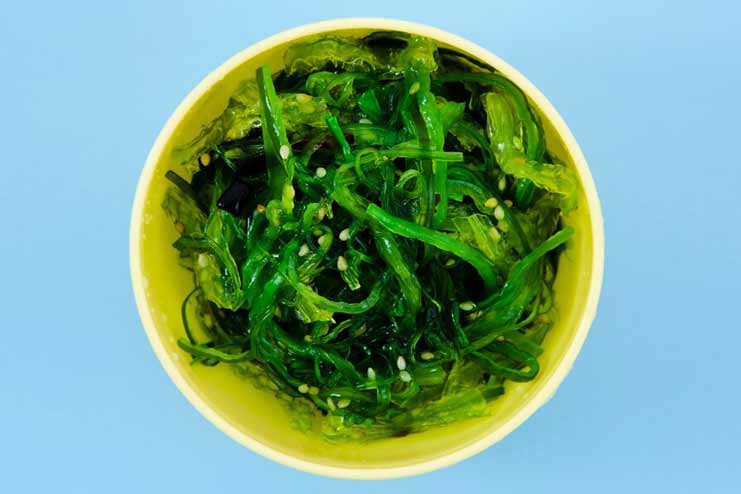Affiliate Disclaimer
Some links in this article are affiliate links. We may earn a small commission if you make a purchase through these links, at no extra cost to you. We only recommend products we find useful to our readersKelp, also called a sea superfood, provides the richest nutrient load for comprehensive general well-being. It supports thyroid function, hence important in furnishing a lot of vitamins and minerals. Be it as a better choice in diet or perhaps as a natural supplement, this ocean giant brings about many benefits meant to transform your wellness.
In this article, we will look at five compelling reasons why kelp is so adored among health enthusiasts and might just be the next superfood you add to your meals.
1. Rich in Nutrients for Optimal Health

Kelp is a superfood rich in valuable nutrients because it absorbs most of the vitamins, minerals, and trace elements found in seawater.
Kelp also contains an exceptionally high amount of iodine, which is beneficial in keeping the thyroid healthy. The thyroid regulates metabolism and energy as well as brain function. When the thyroid doesn’t receive enough iodine, it may become enlarged, and your metabolism can also be impaired.
In addition to iodine, it is full of other vital vitamins and minerals, including:
- Vitamin K1: 55% DV for bone health and blood clotting
- Folate: 45% DV, for cell division and growth
- Magnesium: 29% DV, essential for normal muscle function and nerve conduction
- Iron: 16% DV, whose primary duty is to carry oxygen in the blood
- Vitamin A: 13% DV, supports vision and immunity
- Calcium: 13% DV, required to build and maintain healthy bones and teeth
As far as any nutrient and supplement goes, everything’s best in moderation.
Also, read: Bored of Eggs? Try 6 Healthy Avocado Recipes
2. Supports Thyroid Function

The thyroid needs iodine for bodily functions, but your body cannot produce iodine; therefore, supplementing it through diet is essential. Iodine in kelp stimulates the release of hormones by the thyroid to regulate metabolism and maintain energy levels. Low levels of iodine are linked with hypothyroidism and cause other related diseases that include weight gain and fatigue.
Overdosage of iodine through kelp supplements or too much seaweed will interfere with thyroid function. Consult your doctor before adding kelp or iodine supplements to your diet to avoid harming your health.
3. Aids in Weight Loss

Kelp is a leading natural slimming agent as it has only trace amounts of fat and calories but is rich in alginate, a natural fiber. Alginate binds excess fat in the gut, preventing its absorption, and it may prevent the action of lipase, an enzyme that breaks down fat, by as much as 72%, making kelp useful in supplementing weight loss.
Researchers in Diabetes, Obesity, and Metabolism report that brown algae contain carotenoid fucoxanthin, associated with fat loss when combined with pomegranate oil. Preliminary studies also indicate that kelp may be useful for blood sugar management among individuals with type 2 diabetes. Much more research needs to be done, but kelp seems promising for weight loss and overall metabolic health.
Also, read: 7 Low-Carb Dinner Recipes For A Healthy Heart
4. Boosts Heart Health

Kelp is nutrient-dense, rich in omega-3 fatty acids, high in fiber, and antioxidants in the form of vitamin C, carotenoids, and flavonoids. This reduces oxidative stress and thus drastically reduces heart disease risk factors. The anti-inflammatory and antiseptic properties of kelp are helpful in the long-term battle against chronic diseases.
Kelp contains omega-3s, which support healthy cholesterol and promote better blood circulation, and its fiber plays an important role in lowering blood pressure levels. What’s more important, however, is that research (R) has shown kelp could manage blood sugar levels and support weight loss.
Also, read: Craving Sweets? Try These Delicious Low-Sugar Desserts!
5. Enhances Skin and Hair Health

Kelp is highly hydrating, making skin smooth, supple, and less dry. It also ensures your skin is protected from UV radiation and other environmental pollutants, which cause signs of aging and damage to the skin.
Kelp is also beneficial for hair. Its vitamins and minerals make hair stronger and healthier. Kelp’s moisturizing properties help keep hair healthy by preventing dryness, brittleness, and breakage, adding shine to your hair.
Conclusion
Kelp is much more than a mere sea vegetable. It’s a powerhouse of nutrients and packed with health benefits. Not only does it help with proper thyroid functioning, but it can also be used for weight loss, improving heart conditions, and energizing the skin and hair.
Rich with vitamins, minerals, antioxidants, and fibers, kelp adds worth to a normally balanced diet. However, excessive consumption may prove to be hazardous. Supplement yourself with kelp by adding it to your diet to have a positive impact on your overall health.
References
- https://draxe.com/nutrition/kelp/
- https://www.hollandandbarrett.ie/the-health-hub/food-drink/diets/superfoods/sea-kelp-benefits/
- https://www.patagoniaprovisions.com/blogs/learn/health-benefits-of-eating-kelp
- https://www.medicinenet.com/why_kelp_will_actually_help_you_lose_weight/article.htm
- https://www.healthline.com/health/food-nutrition/benefits-of-kelp
- https://www.webmd.com/diet/health-benefits-kelp
















